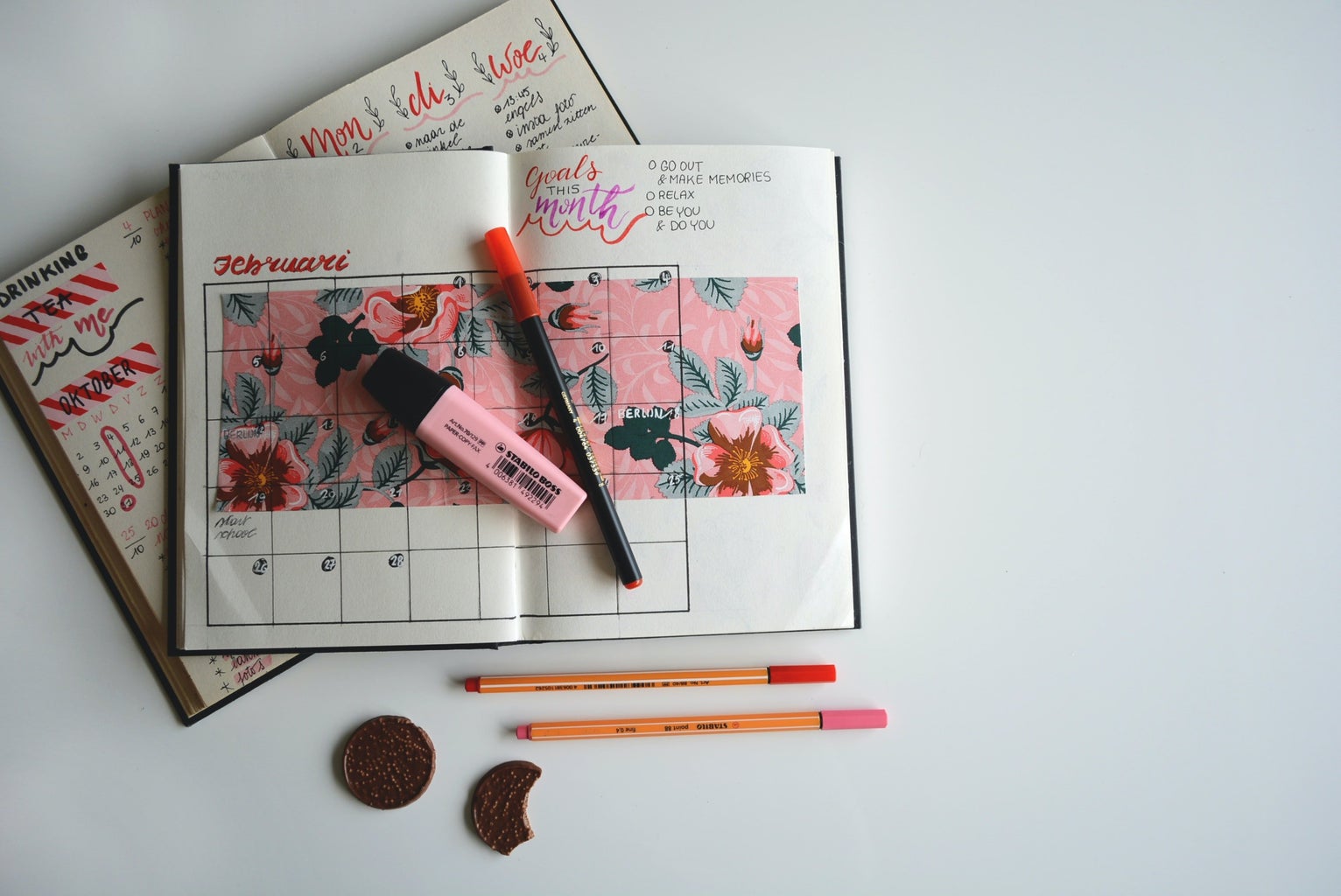There are days when life feels unmanageable. Trying to juggle classes, friends, activities, and finding time for a night out or in can feel overwhelming. With so much going on in your life, it’s easy to feel swept away by a busy schedule. It’s just as important to organize your thoughts and emotions as it is anything else in your life. Finding the connection between your experiences and how they make you feel can help you better understand yourself. With journaling, you take the intangible emotions and make them tangible by putting pen to paper.
While journaling is a great way to work through intense emotions, it doesn’t just have to be how you feel. It is also a way to visualize your future, record your self-growth, and track progress in achieving goals.
Anyone can journal! It’s a private account of your thoughts and for your eyes only. No one will read what you write so there is no judgment about what you choose to write or how you choose to write it.
Journaling is about you. There are no rules you have to follow or guidelines you must adhere to. Here are some quick tips to help you get started and better understand the process.
1. Make Time
Journaling works best when it is a consistent habit. Find time in your day, even if it’s only for a couple of minutes, to get your thoughts down. Journaling at the end of the day might allow for more reflection on the day’s events, but any time will do.
2. Set Goals
An important part of journaling is self-improvement. Set attainable goals that are important to you and track your progress. Whether it’s being more assertive, taking more time for yourself, or getting an internship; writing down your journey can help with accountability and staying on target.
3. Use prompts
If you are looking for inspiration or a place to start, there are tons of journal prompts online. A prompt might sound like describing yourself in ten years or identifying three stressors at your job and brainstorming solutions. Here are some examples.
4. Find a quiet place
Journaling is a time to focus on yourself and how you feel. Finding a quiet place free from distraction enhances the experience and your concentration.
5. Don’t hold back
This is your space that is personal and unique to you. It’s your opportunity and platform to say exactly what you think, how you feel, and what you want. Honesty with yourself is critical. Confronting emotions can be difficult but having a safe and private outlet can help.
Journaling is a great habit to work into your daily routine. Whether you use journaling to start your morning or quiet your mind before bed, it’s a way to personalize your self-growth journey and reflections.







